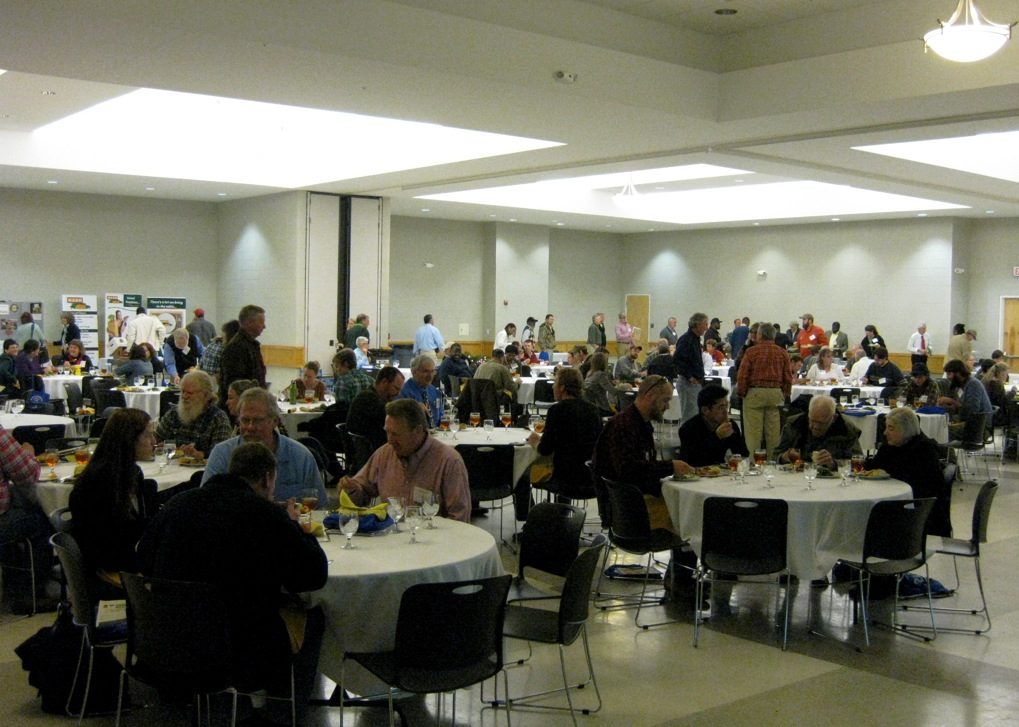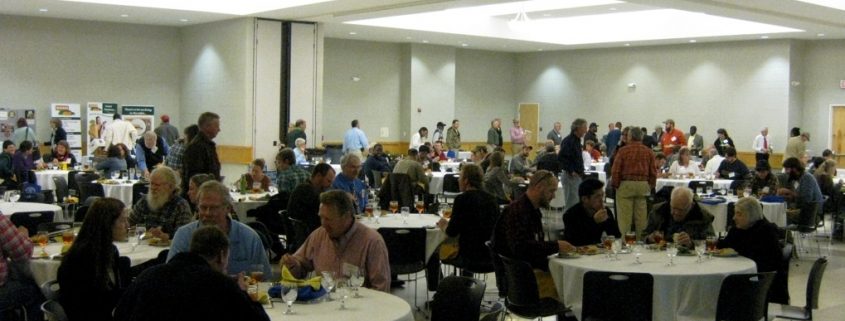ROAD TRIP: ORGANIC COMMODITY CONFERENCE
A few weeks ago, I headed down to the Organic Commodity Conference held in Rocky Mount, NC, that was arranged by our friends at the Carolina Farm Stewardship Association (CFSA). This event offers a chance for farmers, scientists, policy makers, and end users to get to know one another. It also provides a great opportunity for someone with little to no farming background (like myself) to really get a feel for the market pitfalls, certification headaches, and soil fertility issues that our growers face every year.
Many of this year’s presenters focused on a common problem encountered by organic farmers: matching nutrient availability with plant growth cycles. Simply put, many of the organic fertilizers available do not provide nutrients that are immediately available to plants. These amendments, such as chicken litter or compost, must be chemically altered by microbes in the soil ecosystem before they can be utilized by plants. Researchers presented new guidance on testing procedures, scheduling, and economic analyses which were designed to help growers maximize yield without breaking the bank. Most of the sessions were followed by a great “Q&A” period where growers and scientists exchanged information on the latest pricing, shipping rates, and individual experiences; all of which facilitated an exchange of information that I found greatly beneficial.

Over 200 attendees at this year’s conference!
After filling our heads with the latest in organic farming data, it was time to fill our bellies at the local Mexican restaurant, “El Tap” as it’s known Down East. I can say that, as I grew up about 20 miles from the conference site. By the time dinner arrived, our crew had pretty much taken over the place….several farmers (Kenny Haynes and Herb Winslow), NC State’s research team (Chris Reberg-Horton and staff), Carolina Ground (Jennifer Lapidus), and Nick Williams (Head Brewer at Weeping Radish all sat down to salsa, guac, and burritos. The conversation covered everything from compost tea to the explosion in craft beer production throughout North Carolina.
During the long drive back, I got a chance to think about all the aspects of the beer economy, and how these types of conferences are essential to supporting the development of this market for farmers and processors like Riverbend. As Sierra Nevada and New Belgium make plans to expand into our state, it only makes sense to foster the research and development necessary to produce the barley, wheat, and rye that will ultimately fill their mash tuns. Both companies have a proven track record of environmental stewardship and will no doubt look to our researchers and farmers for a high-quality locally-grown product that reflects our southern heritage.


